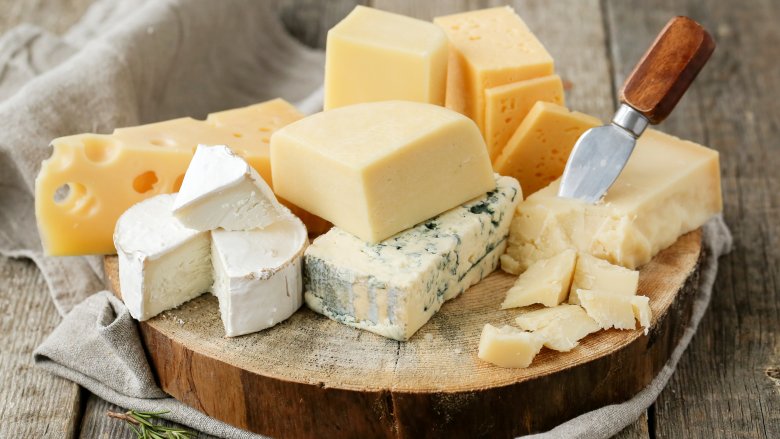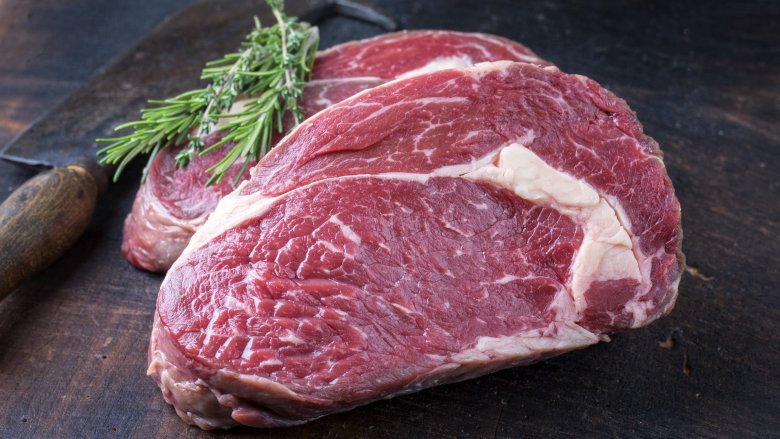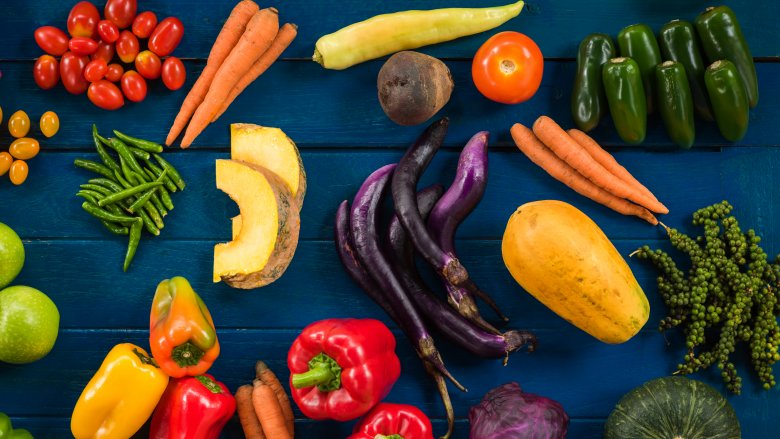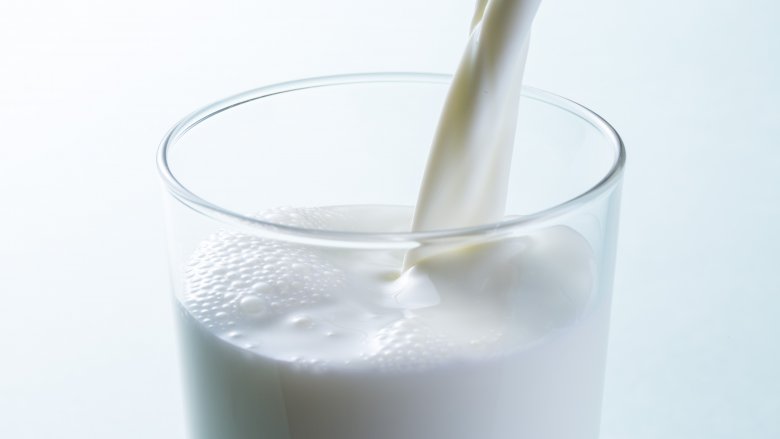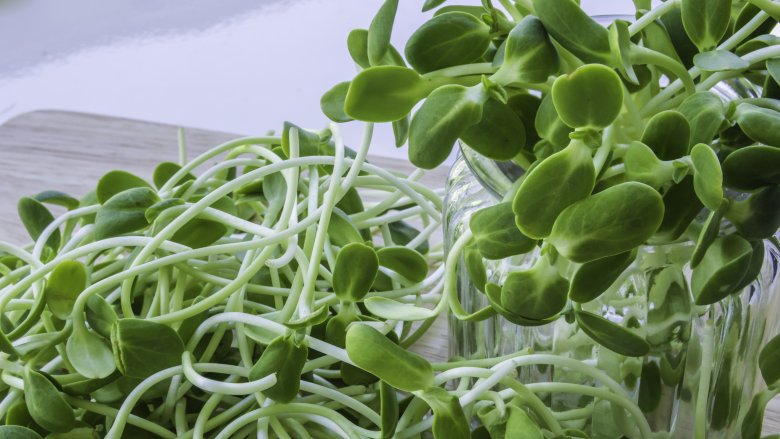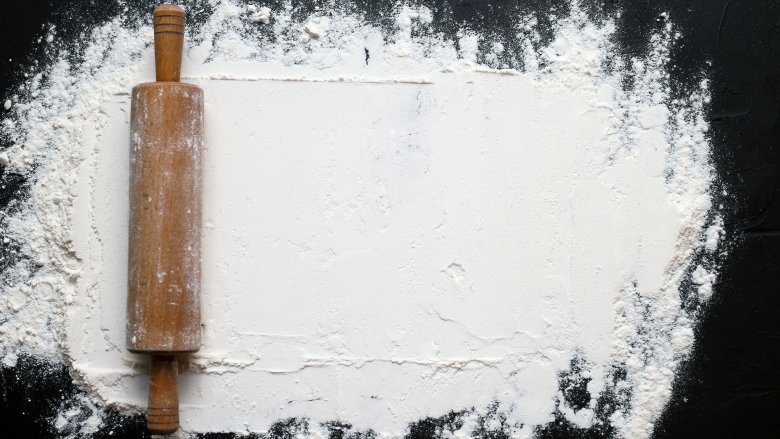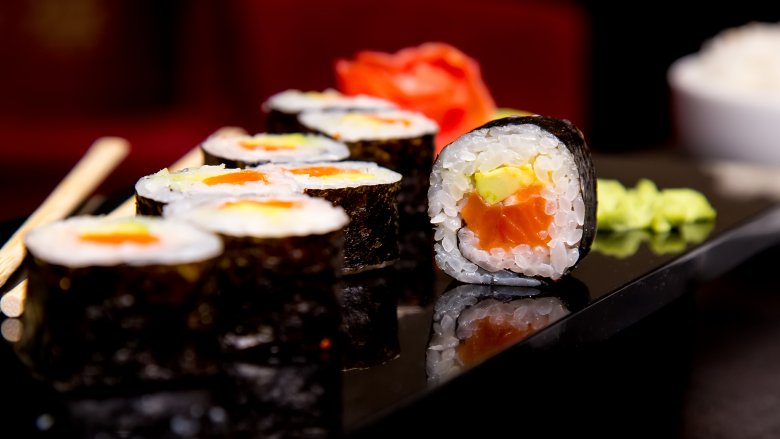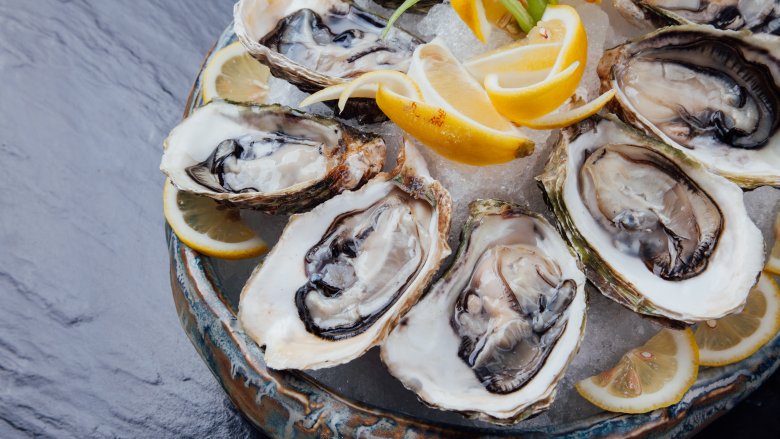Foods The CDC Has Warned People To Avoid
No one wants to get food poisoning. You might be able to power through some common illnesses, such as a cold or a bout of allergies, but if you come down with food poisoning you're most likely going to have to take a few days off, thanks to the need to make a several trips to the bathroom every hour. Even worse is getting food poisoning after trying a new dish while on vacation. Not only will you miss out on part of the trip, but you'll also have lost the money you spent on it.
Fortunately, there are some measures you can take to avoid food poisoning, as well as other food-related sicknesses. The Center for Disease Control and Prevention (CDC) warns people about foods they should avoid. While they regularly update the public about current outbreaks and food recalls, there is a list of foods linked to foodborne illness that should always be avoided — at least if you want to stay on the safe side.
Raw and undercooked meat
Do you wash your meat before cooking it? If you do, you should probably stop. According to the CDC, washing raw poultry or meat before cooking doesn't prevent illness, but can actually spread bacteria all over your kitchen and to any other foods you have out on the counter. The only way to really kill all bacteria is to cook meat thoroughly. For beef, this means cooking it to an internal temperature of 145 degrees, and for chicken, this means cooking to an internal temperature of 165 degrees.
If you aren't sure if your meat is cooked enough, you might want to invest in a meat thermometer just to be sure. Considering that most raw poultry has a bacteria called campylobacter, and all raw meat can have salmonella, E. coli, and other bacteria you don't want any part of, it pays to be safe.
Uncooked fruits and vegetables
Most of us realize that raw meat can carry bacteria, but that's to be expected from once-living creatures. Surely plants are safer, right? Not really. While it can be tempting to nibble the fruits of your labors when berry picking or visiting the apple orchard, you should really wait until you get home to munch on your fresh fruit. The CDC warns that, while fruits and veggies have a whole host of benefits including protection from heart disease, stroke, and even some cancers, they can also carry salmonella, E.coli, and listeria. Fruits and vegetables can have so many germs that fresh produce is the cause of almost half of the cases of foodborne illness in the U.S.
While you never want to wash meat or poultry before cooking it, you definitely want to thoroughly rinse fresh produce. While you might think you can skip the wash on produce that will be peeled, you still need to clean those foods. If you don't, the bacteria from the outside can be spread to the inside when it's cut.
Unpasteurized milk
If you live on a farm (or visit one), you shouldn't ever drink milk fresh from a cow. Many think pasteurizing milk eliminates many health benefits and can cause lactose intolerance, but this isn't true. Unpasteurized milk, also known as raw milk, is one of the riskiest things you can consume. It can carry many germs including brucella, campylobacter, cryptosporidium, E.coli, listeria, and salmonella.
It's a scary list, which is why pasteurized milk is always your best bet. While individual states can set their own laws governing the sale of raw milk, the FDA prevents it from being sold or distributed across state lines. Many states ban the sales of raw milk altogether, while others only allow the sale of it on farms or through "cow-share" agreements. Raw milk is only allowed to be sold in stores in 13 states, and most of those states require clear labels and warnings, so your chances of accidentally drinking it and getting sick are slim.
Cheese
Not all cheeses are created equal. While most of them are safe to consume, many soft cheeses that are made with raw milk are not. These cheeses, which include brie, Camembert, and feta can be just as dangerous as the milk they are made of. Like milk, cheese needs to be pasteurized in order to truly be safe for human consumption. If you're shopping for soft cheese, make sure it's pasteurized before you make your purchase.
The USDA has placed a ban on any unpasteurized cheeses made from raw milk that are less than 60 days old. This is to avoid the spread of outbreaks of listeria, but has resulted in some people smuggling their favorite cheeses from other countries — making them even more likely to get sick as they're often not kept in the right conditions. Cheese isn't the only dairy product that the CDC cautions people about consuming. Anything made from raw milk, such as ice cream and yogurt, can potentially carry bacteria that causes foodborne illness.
Raw sprouts
While you should always wash all fresh produce, the CDC has cautioned people to take extra care with all kinds of sprouts, including mung beans, alfalfa, clover, and radish. All produce can carry illness-causing bacteria, but sprouts can be even more dangerous as seeds and beans need warm and humid conditions in order to develop. These conditions can also encourage the growth of bacteria such as salmonella, listeria, and E. coli. Growing it in your home isn't any safer than purchasing it in the store, either, as even trace amounts of bacteria can spread very quickly.
While washing most fresh produce can eliminate a lot of its bacteria (although it's still safest to cook it), sprouts can be particularly dangerous and should be eaten cooked. The CDC recommends avoiding raw sprouts altogether, especially among those with weak immune systems, young children, the elderly, and anyone who is pregnant.
Raw flour
It might seem silly to warn against raw flour. After all, most people don't exactly go around sneaking spoonfuls out of the flour jar, or add it to their morning coffee. While you're probably not actually eating raw flour by itself, if you're the kind of person who likes to lick the bowl clean when making brownie batter, then you're putting yourself in danger. Sure, we all were warned against eating raw batter and cookie dough as kids, but most of us have probably done it at some point, right? You might not have gotten sick from it, but if you didn't, you got lucky.
Flour is raw product and usually hasn't been treated to kill germs such as E.coli. While cooking does kill any bacteria that might be present, raw dough and batter can pose a very real threat. While it might be tempting to taste just a little bit of that cake mix before you pop it into the oven, it might just make you too sick to enjoy the final product.
Raw eggs
You might think the potential dangers of raw flour are slim enough that you probably won't get sick from sampling some raw cookie dough. If you think that the risk isn't enough to outweigh that delicious dough, you should know that raw flour isn't the only thing in uncooked batter and dough that could be making you sick. They also usually include raw eggs, which pose another health hazard.
According to the CDC, eggs can contain salmonella that could cause food poisoning. In order to stay safe while eating eggs, always use pasteurized eggs and make sure to cook them thoroughly. This means that you should avoid some unexpected things in addition to batter and dough, such as uncooked eggnog and homemade Ceasar salad dressing. You should also make sure that you store your eggs properly, keeping them in a refrigerator that is set at 40 degrees or less.
Raw and undercooked seafood
Like a lot of other foods, seafood is safe enough so long as you cook it thoroughly. You've probably seen menu warnings about eating raw or undercooked seafood. While sushi lovers ignore this advice, they're courting the risk of foodborne illness each time they dive into a fresh piece of raw fish.
The only way to decrease your chances of getting sick when eating raw fish is to eat fish that's been previously frozen, as that should kill any parasites. It won't however, get rid of everything harmful. Unfortunately, there really isn't any way to ensure that you will be completely safe eating sushi, so if you don't want to risk food poisoning you should avoid it altogether. The only way to truly be safe when eating seafood is to cook your catch thoroughly. This means cooking seafood to a minimum of 145 degrees, and reheating any leftovers to 165 degrees.
Raw shellfish
While eating raw or undercooked seafood of any variety can be risky, shellfish can carry even more of a risk. A lot of people like to eat shellfish, such as oysters, right off the shell, but if it's not cooked properly you could be risking exposing yourself to norovirus. Norovirus is often present in oysters that come from contaminated waters, and is the leading cause of gastroenteritis in the world.
The next time you consider a trip to the raw oyster bar, ask yourself if it's worth a potential trip to the hospital. Oysters can also carry vibrio, which naturally inhabits the waters where oysters are harvested. When this bacteria is transferred to humans who eat raw oysters carrying vibrio, it can result in comparatively mild symptoms such as diarrhea and vomiting, but can also lead to more extreme illnesses. These severe infections can lead to limb amputations from bloodstream infections, skin lesions, and death in 15 to 30 percent of those infected.
Seriously, just skip the oysters.
